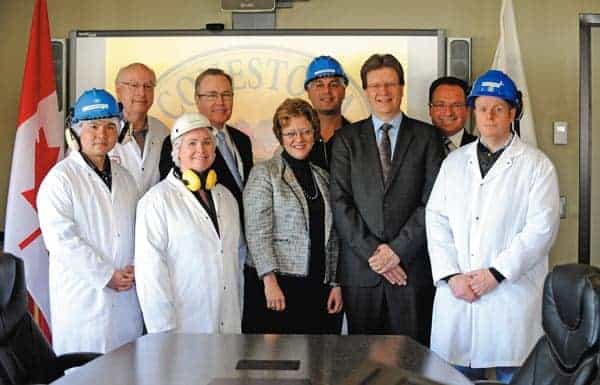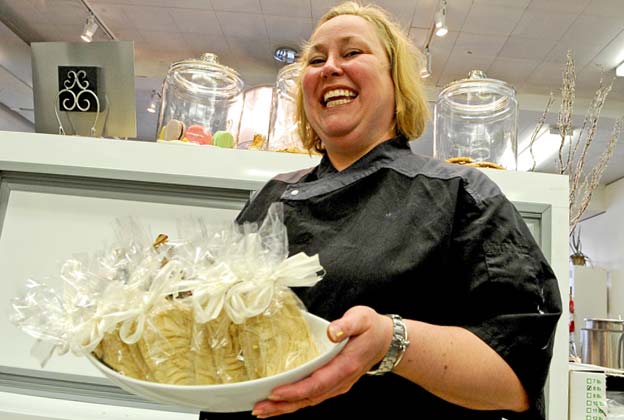![Minister of Public Works and Government Services Diane Finley and Kitchener MP Stephen Woodworth touted the trade deal at Conestoga Meat Packers. Several factory employees were on hand for the announcement.[Will Sloan / The Observer]](https://www.observerxtra.com/content/images/wp-content/uploads/2014/03/post_pork.jpg)
Pointing to the advantages offered to Canadian meat producers in the global marketplace, Minister of Public Works and Government Services Diane Finley visited Conestoga Meat Packers on Tuesday to tout the benefits of a new Canada-Korea Free Trade Agreement.
The pact comes as something of a response to the U.S.-Korea Free Trade Agreement, signed in 2012. Finley told media that Canadian businesses saw a $1.5 billion decrease in exports to Korea after the U.S. deal, and Arnold Drung, president of Conestoga Meat Packers, said that his company’s dealings with the country experienced a similar fall.
“Canadian pork has had success in Korea in the past. It saw significant erosion in the past few years due to trade agreements between Korea and other pork exporters. With last week’s announcement, Canada will again be on a level playing field where we can ably compete.”
Kitchener-Conestoga MP Harold Albrecht added, “Even the best business in the world – the most efficient, most competitive business in the world – cannot compete if the rules of the game are stacked against them.”
The fourth-largest market in Asia, South Korea’s population numbers 50 million. The agreement, Canada’s first free trade treaty with Asia, will eliminate 86.8 per cent of agricultural tariff lines, with duty-free exports of meat and animal products.
“The Korean market places a higher value on certain cuts than other markets around the world do, so it’s important to have access in order to maximize returns for the business,” said Drung.
Albrecht previously used the Breslau facility to tout the Canada-European Union Trade Agreement, with the ambassadors from Romania and Austria visiting in November. Both deals are part of an ambitious slate of free trade legislations the government hopes to complete, with 20 deals encompassing 76 countries.
While Finley also positioned the deal as a potential boon for the Waterloo Region’s tech sector (tariffs are also eliminated on information and communication technology), the legislation has drawn some criticism. Ontario trade minister Eric Hoskins released a statement on March 11 alleging that the deal could hurt Canadian automakers, warning of “an unequal playing field.”
In response, Finley noted that the Global Automakers of Canada support the deal, and added, “The U.S. is able to bring in duty-free cars from Korea because of their free trade agreement, and then they can transship those to Canada because of NAFTA. So I really don’t understand why they would oppose a free trade agreement for Canadians when they supported the one with the U.S.”









